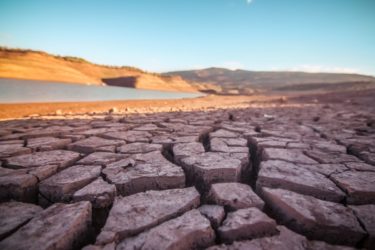
ASP in New Mexico: Climate Threats at Home and Abroad
On February 12, Vice Admiral Lee Gunn, USN (Ret.) spoke to an audience of roughly 80 people, as part of the New Mexico State University’s Climate Change Education Seminar Series. His presentation, titled “Climate Security: Threats and Responses at Home and Abroad,” highlighted the national security implications of climate change.
Admiral Gunn explained that New Mexico is the nation’s sixth fastest warming state. Temperatures have increased 2.7°F since 1970. Increasing temperatures have contributed to the desertification at White Sands Missile Range. If desertification continues, future training and exercises may be limited, threaten military readiness.
Prior to his presentation at New Mexico State University, Admiral Gunn spoke with Peter Goodman and Walt Rubel, as part of the “Speak Up Las Cruces” radio show.
“Suppose the transition to advance energy lags because of lack leadership from the U.S. and the Chinese lead the way, and we just have to buy whatever it is they invent and produce. Let’s say we look at places like South Florida and Eastern Virginia and elsewhere around the country where the sea levels are rising, and suddenly, we are scrambling to remediate what we should’ve anticipated earlier and prevented,” Admiral Gunn posited.
“…we will have failed to do what was obviously necessary,” he added.
In conclusion, Admiral Gunn highlighted some other areas of the American Security Project’s (ASP) work, to include fusion energy.
“Fusion energy has the potential to be a true a silver bullet, with regard to energy generation.”
Admiral Gunn’s trip to New Mexico is part of ASP’s National Climate Security Tour. To date, ASP has traveled to nearly 30 different locations to discuss the national security implications of climate change. The intent of these events is to show that the climate we live in influences every aspect of everyday life – what you eat, where you live, how you make your living. Changes to the climate will have a direct impact on every one of us.
ASP has additional climate tour stops planned for 2020. Continue to follow ASP’s climate security work for more updates.






